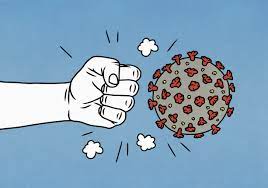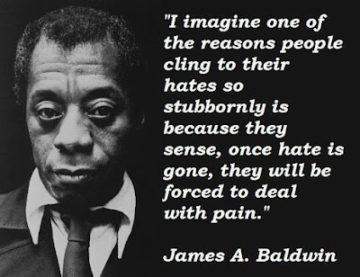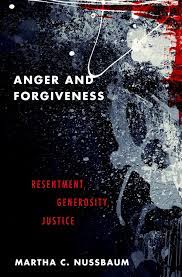by Marie Snyder
 The anger that escalated at a recent Ottawa-Carlton school board meeting when a trustee proposed and lost a motion to mandate masks, in a setting that typically elicits polite discussion, makes it seem like this type of anger is new and shocking in its inappropriateness. But this video of the history of masks, and memories of what many of us lived through when we imposed smoking bans and seatbelts years ago, makes it clear that people have always been fired up by any new restriction. Masks may be even more enraging because they’ve also become symbolic of a danger and harm we’d like to forget.
The anger that escalated at a recent Ottawa-Carlton school board meeting when a trustee proposed and lost a motion to mandate masks, in a setting that typically elicits polite discussion, makes it seem like this type of anger is new and shocking in its inappropriateness. But this video of the history of masks, and memories of what many of us lived through when we imposed smoking bans and seatbelts years ago, makes it clear that people have always been fired up by any new restriction. Masks may be even more enraging because they’ve also become symbolic of a danger and harm we’d like to forget.
But more than that, this type of anger that targeted the specific trustee with emails and phone calls, that included vile sexist and racist comments and threats, is more reminiscent of GamerGate, when a few women dared to criticize some games and were brutally harassed online and doxed, provoking at least one to move. This Vox article explains what needs to be done to prevent these occurrences:
It’s crucial to understand how, when, and why an online mob is expressing outrage before you decide how to respond to it. Gamergate should have taught businesses that online mobs can and do look for excuses to be outraged, as a pretext to harass and abuse their targets. There’s a difference between organic outrage that arises because an employee actually does something outrageous, and invented outrage that’s an excuse to harass someone. . . . 2014 should have been the year the cultural conversation began to acknowledge how serious aggression toward women really is. It wasn’t.
This understanding of the situation suggests that an outlet for anger is the point and that gaming was just a catalyst or merely the easiest avenue for the anger to seem remotely reasonable. It’s like when a hungry or tired toddler is upset with a random toy until that inner irritation is resolved. The grade school version finds a scapegoat to unload on and then they discover the glee of having power over another. We need to resolve these inner irritations and the joy of domination before people become adults with a greater capacity to cause lasting harm.
Prior to the vote, the Ottawa Citizen reported that the hate mail might persuade trustees to vote against mandates:
For some of those trustees it might be their first time ever on the receiving end of really bizarre and misinformed and angry letters. . . . We disproportionately get these angry voices, and some of them are not from Ottawa, some of them are not from Ontario, and some of them are not from Canada.
The motion failed to pass in a 6-6 tie, and we’ll never know to what extent the angry mob’s presence affected that vote. But knowing that this inappropriate expression of anger isn’t just due to the pandemic or to social restrictions, and it’s not entirely targeting women, as we saw with the death threats for Prime Minister when he stopped the convoy protests, clarifies that it’s a deeper problem that won’t be solved by merely kowtowing to demands.
Anger can be a motivating emotion leading to correcting injustices in the world. But in order to be useful to society, it has to be aimed at attacking something harmful. A trustee who proposes a vote on a mandate isn’t risking harm to any individual, either is a writer who comments on a game or a prime minister who stops a weeks-long congregation that’s adversely affecting people who live and work in the area. This rage isn’t useful to get somewhere rational, but merely sabotages the movement by bringing forth chaos and fear instead of reasonable dialogue.
It might feel like masks can harm, and one delegate suggested his children are afraid to hug other kids because of masks, but in that case masks are just a symbol of the real concern, since of course most kids would hug a friend in a funny Hallowe’en mask. It’s not the mask, but that it represents the pandemic, which is terrifying. It’s horrific trying to raise kids when they could end up hospitalized and disabled or worse just from close contact with their friends at school. It’s exhausting to be worried all the time. It’s so much easier to just get people to stop talking about it, and, more than that, it feels great to have a target to dump our feelings on, all disguised as anger.

Dig beneath most anger, and you’ll find fear. If we can soothe the fear, maybe by finally being convinced that masks will reduce the chance of getting sick, then the anger might dissipate. Alternatively, picking on others down the pecking order also feels good and there’s much less thinking involved. Fear makes us feel helpless, and frustration needs to be discharged, so aggression is the go to in order to help people feel powerful again. Sharing anger helps it dissipate, so it feels better. It’s much harder to turn inward to look for the fear and resolve that instead.
There are some good arguments not to have a school board mandate, but few strong points were raised at the meeting, and speakers promoting masks couldn’t be heard above the yelling until the audience was finally removed. The anger on display wasn’t from an attempt to find the best solution by listening to all sides. From an outside view, it appears that the crowd didn’t want to be heard and have their views discussed; they just wanted to be obeyed. Their take-home message seemed to be, “Don’t have a mandate or else.” But, of course, that just makes it all worse in the long run, which means tomorrow more kids will be rushed to the hospital gasping for air. We need people fighting the virus instead of fighting the people trying to stop it.
To go further through history, however, this anger is not just an element of our individualistic, self-centred modern world as we might imagine. We can go back over 2,500 years to Aeschylus’s Eumenides: Our world is propelled by rage, and we need to keep trying to do better, “That good may stand in evil’s stead.” Rage seems like something that surely we’ve weeded out as we “became” civilized, or as we modernized and showed off our brilliance with new inventions, but that primal element can’t be tamed once and for all.
 In Anger and Forgiveness, Martha Nussbaum explains that Aeschylus’s play treats anger as disease, and our job is to heal diseased interpersonal relations. This isn’t a recent problem, but part of our human nature that needs to be revisited regularly if we hope to keep the peace in society. Society gains from people following rules of social decorum, mastering self-control, and doing work that improves their minds.
In Anger and Forgiveness, Martha Nussbaum explains that Aeschylus’s play treats anger as disease, and our job is to heal diseased interpersonal relations. This isn’t a recent problem, but part of our human nature that needs to be revisited regularly if we hope to keep the peace in society. Society gains from people following rules of social decorum, mastering self-control, and doing work that improves their minds.
She looks at how Gandhi, Martin Luther King, and Nelson Mandela were able to shift the societal narrative enough to affect action using motivating passion without targeted rage. She explains Mandela’s view: “to disarm resistance you needed to disarm anxiety first, and this would never be accomplished by expressions of anger or bitterness, but only by courtesy and respect for the other’s dignity” (227).
This suggests that the vitriol coming at people should be met with compassion. That’s not to imply bending to their will, or allowing “multiple voices” as if poor methodology leading to a dubious result can be compared to a scientific consensus on an issue that has stood up to an educated scrutiny. And it’s not to suggest that people should avoid doing everything necessary to protect themselves from threats, because they must, and online threats that come to some justice might be a deterrent to others. Instead, compassion suggests understanding that there is a host of misinformation out there, and people are scared, and they need very patient help to get to a point of understanding the science on all this. But it takes a strong resolve to address the enraged without becoming infected by it, and most of us are not up to the task. Nelson Mandela wrote at length about the need for cultivating self-discipline around anger and realizing the futility of payback. In his address on the assassination of anti-apartheid leader Chris Hani, Mandela said, “Our decisions and actions will determine whether we use our pain, our grief, and our outrage to move forward…by remaining a disciplined force for peace.” But this rage propelling the world takes an effort to leave behind, and too few seem to have the discipline to stay above the fray and the fortitude to address it.
Nussbaum narrowed our tolerance of anger down to three claims, and she refutes each one :
Why do contemporary Americans tend to think that health, and learning, and fitness deserve tough personal effort, and anger does not? Why do we think that medical and economic research deserve our public political effort, and that the social disease of anger does not? Here are three likely reasons:
1. Americans may believe the tendency to anger is hardwired in human nature. . . . Anger may have evolutionary roots, but its centrality in society is far more a construction of cultural norms and personal cultivation or lack thereof. . . . what is inherited is a tendency, not its inevitable outward expression. . . . As with diet and exercise: we do not have to believe that we will ultimately free ourselves from all illicit cravings in order to embark on a program of self-cultivation.
2. We believe that it entails an inhuman, extreme, and unloving type of detachment. . . . [The pursuit of non-anger] allows us to maintain deep loves, friendships, and other commitments, and to maintain the vulnerability to grief and fear that such loves entail. Nor do we need to be harsh with ourselves when we fail, as we often do . . . a type of self-anger.
3. Many people . . . think anger is good, powerful, and manly. They encourage it in their children (especially boys), and they indulge it in both self and others. [Ancient Greeks and Romans] saw anger as disease and as weakness, and they viewed the angry person as infantile, rather than powerful. Getting to that insight is half the battle. . . . When there is great injustice, we should not use that fact as an excuse for childish and undisciplined behaviour” (248-9).
We’re still on that forever journey of looking around at the problems driven by our very fallible human nature and realizing we need to look inward more to improve ourselves before we can help the world, and then help without being so attached to our goals that we lash out when we can’t get there. To paraphrase a famous line from Pirkei Avot: It’s not our responsibility to finish the work, but neither are we free to abandon it (2:15-16).
It also reminds me of the final lines of the movie Se7en:
Ernest Hemingway once wrote, ‘The world is a fine place and worth fighting for.’ Well, I agree with the second part.”
Human nature is driven by passions, but, unlike many other animals, we have the ability to think in a future-oriented way and self-reflect enough to override our most base desires, even within this messy nature of ours that can experience an internal reward for behaviours that harm others. Unfortunately, this is an endeavour that takes a lifetime, and then has to be started again and again with each new generation. It’s worth the fight.
